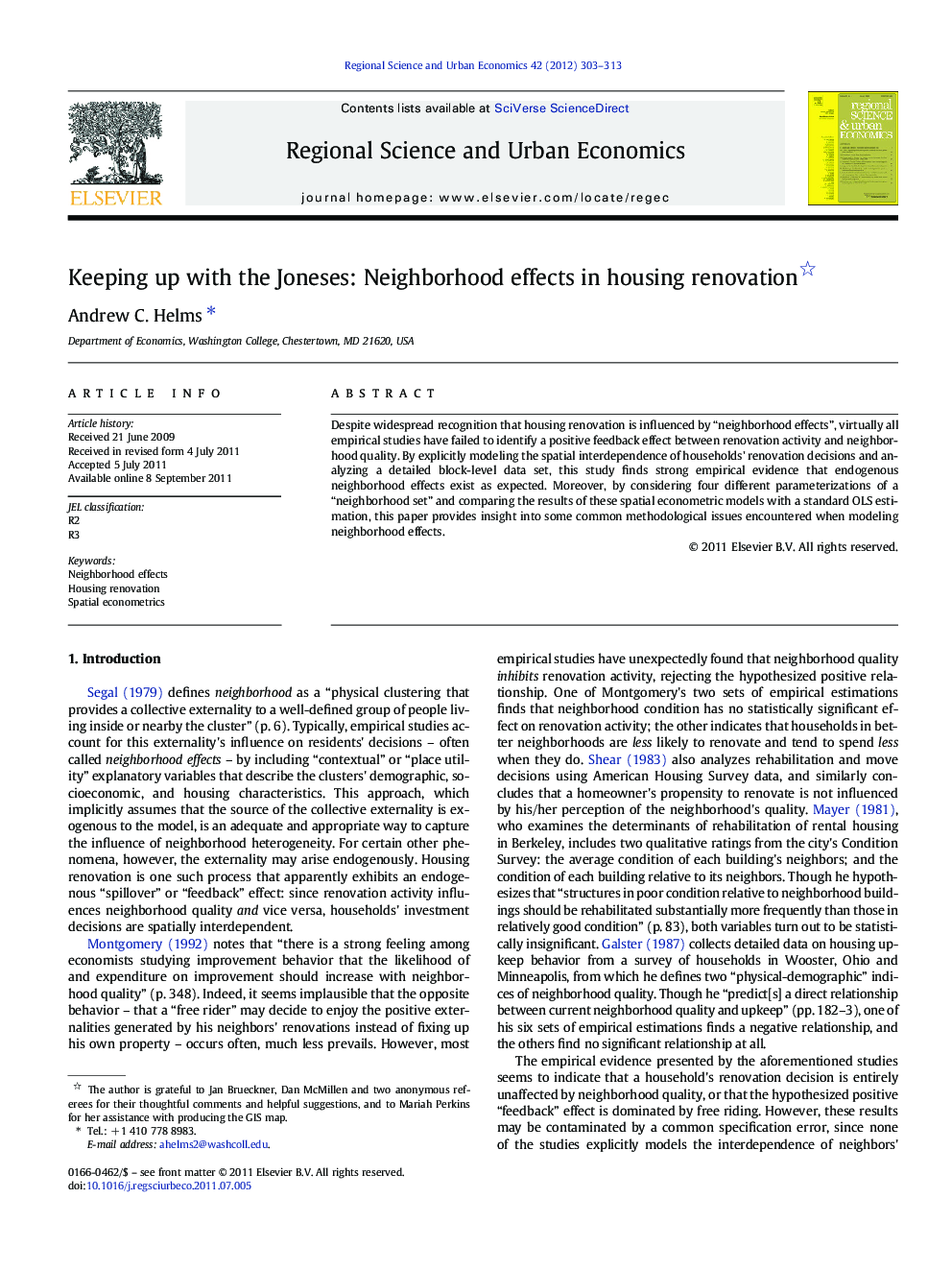| Article ID | Journal | Published Year | Pages | File Type |
|---|---|---|---|---|
| 981122 | Regional Science and Urban Economics | 2012 | 11 Pages |
Despite widespread recognition that housing renovation is influenced by “neighborhood effects”, virtually all empirical studies have failed to identify a positive feedback effect between renovation activity and neighborhood quality. By explicitly modeling the spatial interdependence of households' renovation decisions and analyzing a detailed block-level data set, this study finds strong empirical evidence that endogenous neighborhood effects exist as expected. Moreover, by considering four different parameterizations of a “neighborhood set” and comparing the results of these spatial econometric models with a standard OLS estimation, this paper provides insight into some common methodological issues encountered when modeling neighborhood effects.
► Empirically examines endogenous feedback effects and spatial interdependence in urban housing renovation. ► Block-level data of renovation activity in Chicago (1995–2000) include 24 characteristics of buildings and neighborhoods. ► Results of spatial 2SLS estimations suggest that neighborhood effects strongly influence households' renovation decisions. ► Discusses issues involved with modeling neighborhood effects and social interactions (reflection problem, neighborhood sets).
